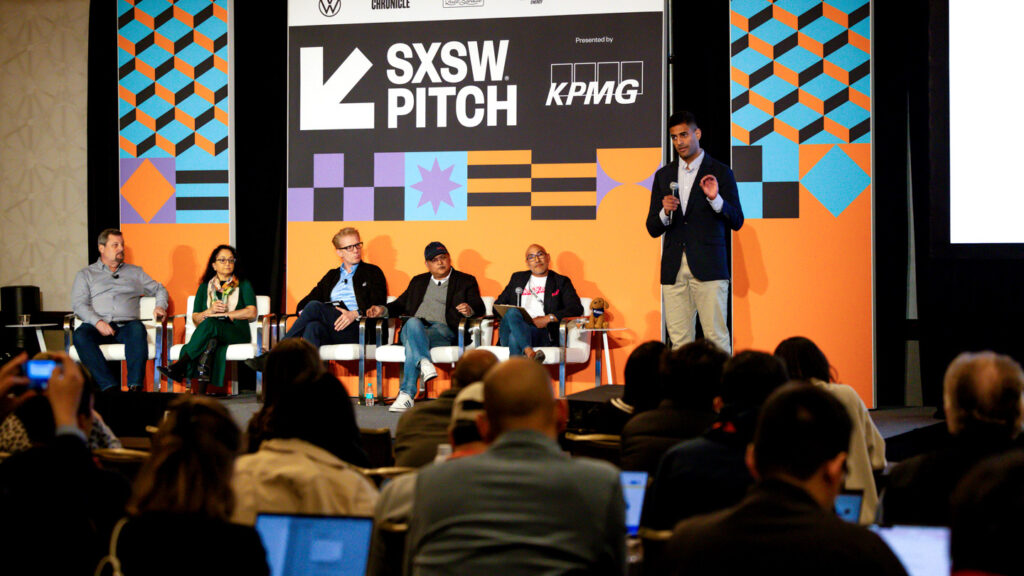CHAMPAIGN, IL — It’s barely dawn in Champaign, and Yi Chen, 27, is in University of Illinois professor Logan Liu’s Nanobionics lab, poking delicately at gleaming blue wafers and crunching phantasmal numbers. Chen’s partner in crime, Rui Cai, 26, joggles the knot of his thatched tie and gives two tugs to his smart wool coat in anticipation of a two-hour drive for an early meeting with potential investors.
Chen and Cai are co-founders of Effimax Solar, a startup company that is transforming the way solar cells are manufactured so more light to be captured and converted into energy. Effimax Solar is one example of many early-stage startups that have been able to navigate through a wealth of entrepreneurial resources in Central Illinois and take on the startup community in Chicago. “I sought all opportunities to become an entrepreneur,” said Cai, who is an August 2011 graduate of the Masters of Science in Technology Management program at the University of Illinois, “and that’s how I met my partner Yi Chen.” Cai unearths a warm smile as he climbs onto the minivan of young entrepreneurs from the Illinois Launch Accelerator Program heading north to Chicago. Launch is an initiative of the UI Academy for Entrepreneurial Leadership (AEL) that gives mentorship, grant funding, and networking opportunities to young startup companies to help them emerge from Champaign as high growth sustainable businesses. Launch uses the EnterpriseWorks incubator to provide lab and office space to its startups. “We’re excited to bridge the gap between the startup ecosystem in Chicago and the community here in Champaign,” said Amara Andrews, assistant director of the AEL. “Some of the successful companies out of the University of Illinois traditionally flee to the coasts. We’re excited to bring them to Chicago and introduce them to the investor community there.” A former rap music sensation in China’s east coast, Cai came to the United States one year ago to pursue what seemed like a very different career, entrepreneurship — and “it was even difficult to get involved in daily conversations here,” Cai said. But Cai’s ambition, combined with Chen’s big picture know-how, helped Effimax Solar take first place in the 2011 Cozad New Venture Competition. The startup is now in a position to pitch to key mentors and investors in Chicago. “I had my mind set on being an entrepreneur before I [came] here,” said Cai. “Being a musician, going on tour, is a lot like running a business. You have to deal with many kinds of people and make sure they don’t ‘forget’ to pay you.” There is a flurry of entrepreneurial resources in Champaign that have helped entrepreneurs like Cai take flight, including the UI Research Park, UI Technology Entrepreneur Center, UI Office of Technology Management, Illinois Ventures, and Champaign County Economic Corporation, among other programs. Select university freshman can even dip their toes into entrepreneurship through a special UI residence hall program called the Innovation Living Learning Community. “We have a world-class facility here and we make technology,” Cai said. “Our goal is just to provide resources to students to help them become companies that change the world,” said Stephanie Larson, program marketing coordinator of the UI Technology Entrepreneur Center. “We’re really trying to get [startups] to the next step.” What is the next step for startups born in Champaign County? Andrews hopes they stay in Illinois and take advantage of the resources that can be brought down from Chicago. “We want to bring the momentum from Chicago down to Champaign, where we have tremendous talent on campus in our students and faculty,” Andrews said of Illinois Launch. Several investors in Chicago are trying to strengthen the connection between the entrepreneurial hubs of Chicago and Champaign. One way they are doing this is through the newly founded Catapult Fund, which is an accelerator program that provides funding and mentorship to startup companies coming out of the University of Illinois. “We do our small part to encourage business creation in Illinois,” said Alexander Goldstein, a partner in the Catapult Fund and a founder of the Illinois Launch program. “Our role is to encourage entrepreneurs to start companies, to scratch their own itch, to solve problems.” The Catapult accelerator program will invest an average of $20,000 in each qualified startup team, in exchange for two to ten percent of each company’s equity. Participating teams will graduate in three months. Other young but thriving accelerator programs in Chicago include Excelerate Labs and Healthbox, while startup space can be found at the Illinois Technology Association’s TechNexus. More entrepreneurial resources can be reaped from the Chicagoland Entrepreneurial Center and Startup Illinois, as well as University of Chicago’s ARCH New Business Incubator. Last week the Illinois Institute of Technology opened the doors to an impressive new research facility with space for up to 34 companies.
“We do our small part to encourage business creation in Illinois,” said Alexander Goldstein, a partner in the Catapult Fund and a founder of the Illinois Launch program. “Our role is to encourage entrepreneurs to start companies, to scratch their own itch, to solve problems.” The Catapult accelerator program will invest an average of $20,000 in each qualified startup team, in exchange for two to ten percent of each company’s equity. Participating teams will graduate in three months. Other young but thriving accelerator programs in Chicago include Excelerate Labs and Healthbox, while startup space can be found at the Illinois Technology Association’s TechNexus. More entrepreneurial resources can be reaped from the Chicagoland Entrepreneurial Center and Startup Illinois, as well as University of Chicago’s ARCH New Business Incubator. Last week the Illinois Institute of Technology opened the doors to an impressive new research facility with space for up to 34 companies.











